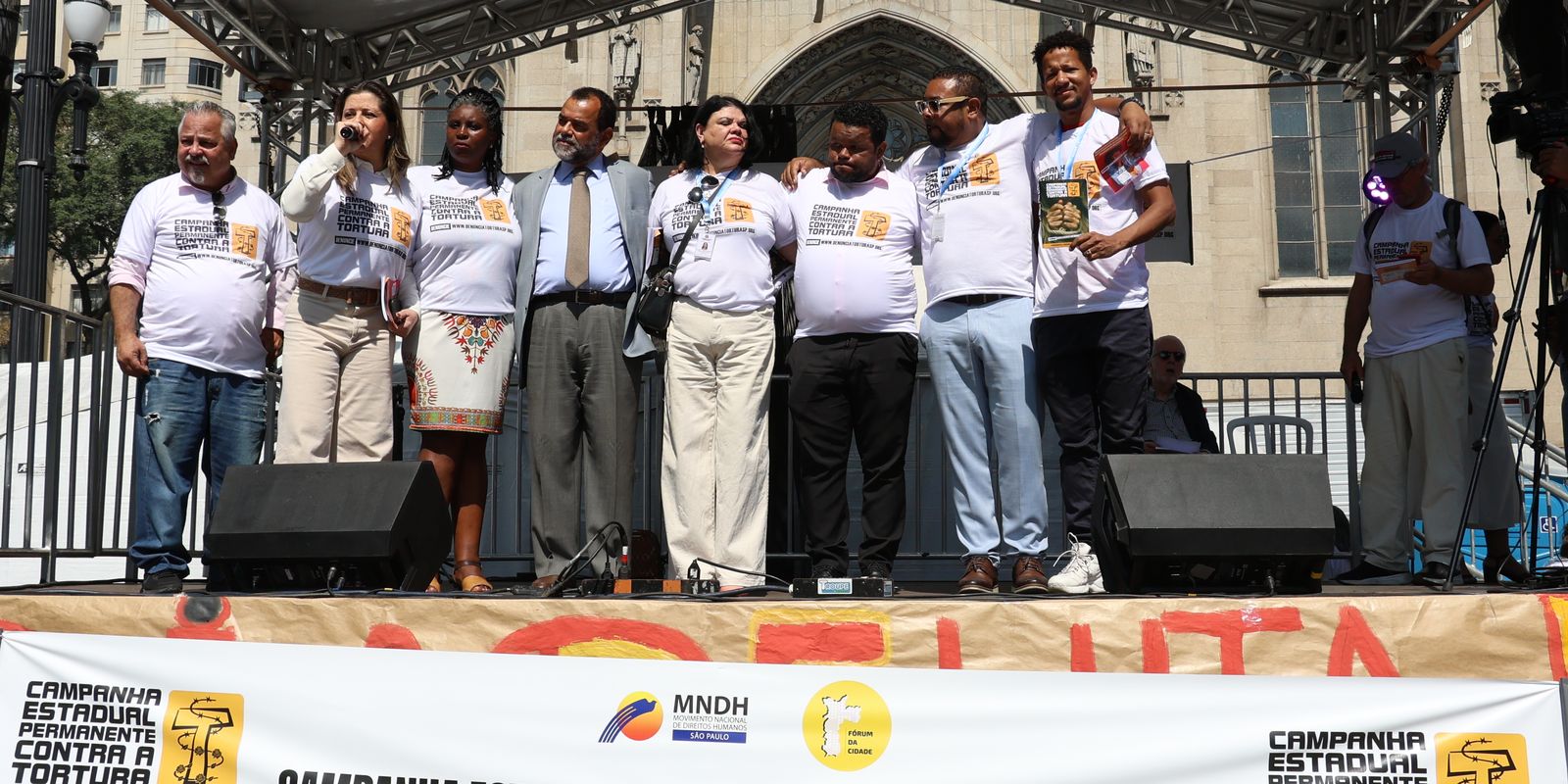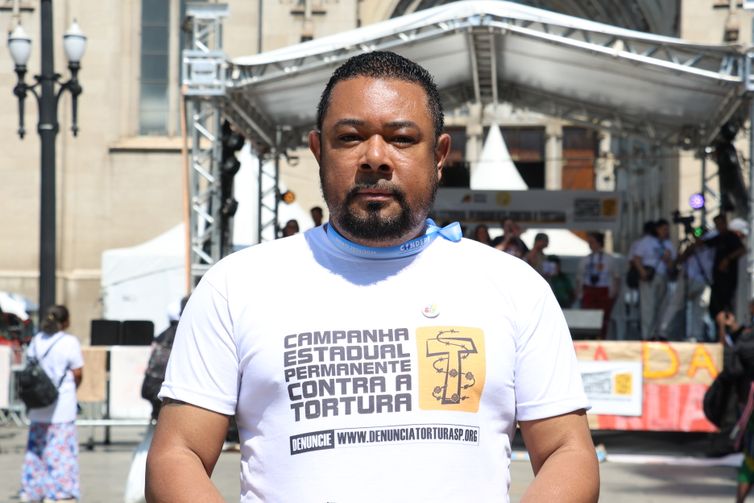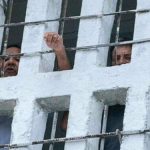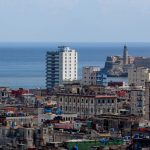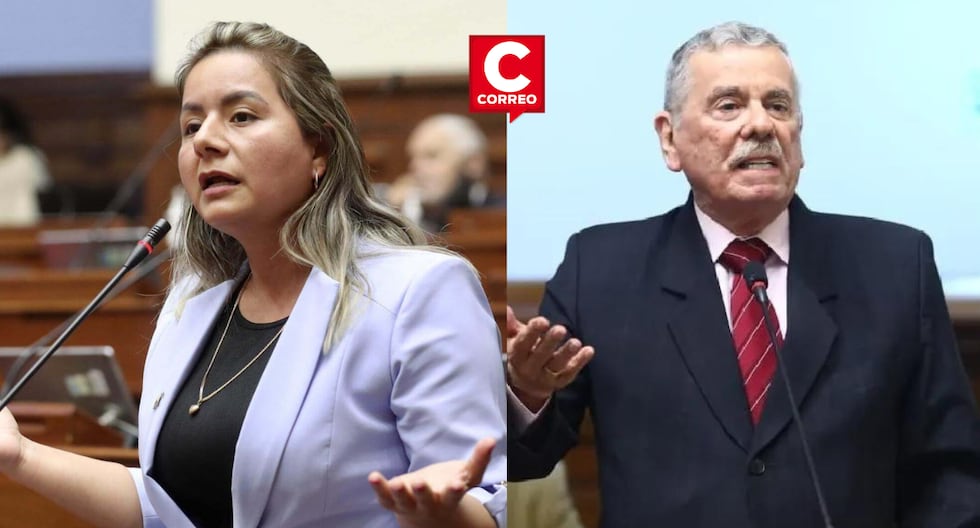Human rights organizations launched this Monday (19), in the capital of São Paulo, the Permanent State Campaign to Prevent and Combat Torture, which aims to curb the practice in various places, especially prisons, socio-educational systems, therapeutic communities and also that committed against the homeless population. The launch date of the initiative coincides with the 20th anniversary of the Sé Massacre, when seven homeless people were murdered, and security agents became suspects.
The main tool of the campaign is the creation of a website which will serve as a reporting channelwhich can be done anonymously. Through the websiteit will also be possible to schedule an appointment with the São Paulo State Council for the Defense of Human Rights (Condepe), SOS Racismo and the São Paulo State Police Ombudsman’s Office. The resource should also facilitate referrals of cases to the Victims and Witnesses Program (Provita) and the Victims’ Reference and Support Center.
The president of Condepe, Adilson Sousa Santiago, said that the intention is for a first report, generated from the records in the reporting center, to be consolidated and released within a month. “Torture has changed. We are no longer talking only about the torture that tears you apart, that breaks the person, breaks bones, that tears off limbs, but torture that has found other forms,” he emphasizes.
“We see the homeless population all the time, the police forces carrying out that ‘humanitarian cleansing’, especially when there is a big event that needs to present a city that is different from what we see on a daily basis. This population is the most abused, when they have their blankets, mattresses, and tents ripped away,” adds the president of Condepe.
Asked about which other locations in the state have reached significant numbers of torture, Santiago highlights Campinas, Taubaté and Itatiaia. “In Condepe, the most common reports are [tortura em] prisons”, he emphasizes.
According to the Brazilian Observatory of Public Policies for the Homeless Population, of the Federal University of Minas Gerais (UFMG), in July, this contingent in Brazil was 301,896 people. The state of São Paulo accounts for 42% of the total registered, with 127,169 people, a number higher than that of December 2023, when it was 106,857 (41%). The capital São Paulo accounts for 64% of the homeless population in the federative unit, with 81,760 people.
Roseli Kraemer is a member of the São Paulo City Forum, working more strongly in the area of women’s rights. She has identified herself with the movement for years hippiecounterculture, ended up in need during the pandemic, when her daughter was still a minor, and, since then, she became part of the organized movement to defend the homeless population during the pandemic. Currently, she is part of the Reunion programstructured by the city of São Paulo and which offers temporary housing to homeless people.
“We have no peace,” says the activist, who compares her situation and that of her fellow fighters to that of prisoners on bail. “We are the most massacred. Women suffer brutal violence because they have no support, they have nothing and they are at the mercy of everyone. We are at the mercy of the government, the streets, everyone. The physical and emotional violence is enormous. And today, the visual violence is too, because today, when you look around, it’s all police. You don’t have the right to come and go, the right to stay, you don’t have the right to anything. And the machismo itself, because the women in the security forces are machistas, they act violently against women,” she says.
“Women age faster on the street, they wear different clothes to avoid being raped,” she adds.
In an interview with Brazil Agencythe coordinator of the National Movement for the Struggle in Defense of the Homeless Population, Edvaldo Gonçalves, said that he knew three of the victims of the Sé Massacre.
“We tried to federalize [a investigação]he couldn’t do it, it was left in the hands of the state and to this day no one knows who did it. We are suspicious and can’t talk about it, because if we do, we are at risk”, says the leader of the movement, who lived on the streets for 30 years. “It’s difficult to celebrate this day. August 19 is no longer just a national day, it has become a Latin American date. In South America, it has become a day of struggle.”
In the capital of São Paulo, one of the points denounced by the movements is the relationship between the offensives of the security forces and real estate speculation. Furthermore, as André Lucas Zaio, a full member of the PopRua Committee, points out, there is a strong prejudice that prevents families and people living on the streets from having the chance to obtain social housing. The argument, he explains, is that people in this situation would acquire the properties and then sell them, to spend the money irresponsibly.
“We fight hard for public policies so that these properties [desocupados] no longer belong to their owners, because the value, the debt they have with the municipality, is already greater than the market value of the property”, he states, citing the Asdrúbal do Nascimento II Housing Complex/Mário de Andrade Building, in the city center, as an example of how this is a mistaken perspective. “These apartments still exist today. There are 34 of them and people still own the properties.”
